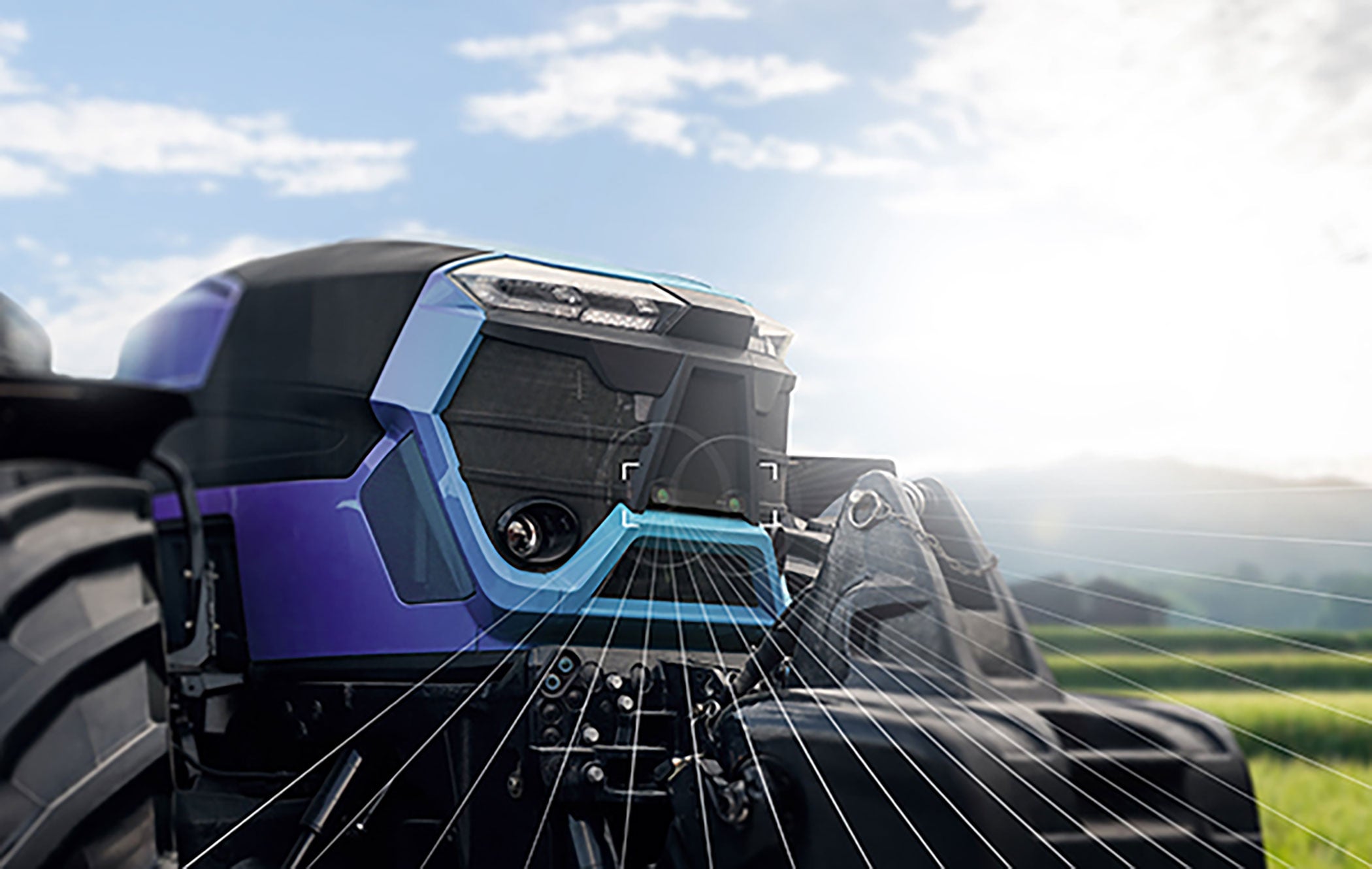I wrote the intro to this using ChatGPT. Just kidding. But in today’s modern technology and advanced computation, using AI to write an introductory paragraph for an article is not only very possible, it’s even being done with more frequency across media.
What’s also possible (though far less frequent) is the marriage of AI and stereo vision cameras, which is a camera that can simulate images the way your eyes do, in 3D instead of flat. That’s what Stereolabs does, and the company has spent the past few years integrating its ZED camera into agricultural equipment to build autonomous, data-driven machines.
This high-tech application is part of the emerging tools in the realm of precision agriculture, a methodology of farming that uses lots of data collected about the cropping system to inform management decisions.
Stereolabs was founded by CEO Cecile Schmollgruber, as well as Olivier Braun and Edwin Azzam. Schmollgruber, who majored in optics at École Polytechnique in France, was always a curious child and interested in how things worked.
“I always looked at technology, wanted to know how it worked … specifically focused on high-resolution cameras,” she said.

After meeting Braun and Azzam at Institut d’Optique, they worked on software generating perfect 3D images using stereo vision — thus Stereolabs was born.
After a stint in Hollywood (their technology was used in one of director James Cameron’s Avatar movies), Stereolabs integrated its technology into a camera. Today, the company has developed, according to its website, an “advanced perception system, powered by vision, that fuses data from multiple sources to provide a deep, semantic grasp of the environment, without interruptions.”
This system is being paired with AI and integrated onto agricultural equipment, like tractors, to turn a farmer’s everyday equipment into a data collector, capable of detection and analysis. The first to go to market is the now-famous Monarch MK-V electric tractor, a one-of-a-kind autonomous tractor that gives farmers an abundance of data and analysis, helping the farmer make precise and efficient decisions in their management.
“This machine can now do certain tasks … for example, spraying,” Schmollgruber explained. “The camera can understand where crops are, how much water to spray on the crops. … [It can be] used to understand the environment.”
Schmollgruber saw the need for precision technology in the agricultural sector, and how her company’s technology could support farmers by being their eyes in the field. What makes Stereolabs stand out is the fact that it truly is eyes in the field, since the ZED camera is capable of spatial recognition, the way your human eyes are.
It’s exactly this depth perception capability that agriculture needs in order to develop say, a picker that can recognize not just that an apple is there, but “see” the depth of the apple to pick it with just the right amount of force (not too hard to bruise or crush it, and not too gently that it would fall out of grasp easily).
The stereo vision camera provides the recognition, and the AI algorithm can analyze the image and determine the force needed to pick the apple just right. This sort of automation can help farmers increase efficiency and productivity while saving their own personal labor and time running a harvester.
“You could potentially automate the entire cropping cycle this way,” said Schmollgruber. “In strawberries for example, one machine does all the steps until the packaging.”
From a smart no-drill seeder, to autonomous fertilizer applicators, and onto a high-tech harvester, the possibilities of AI and high resolution cameras in the agricultural sector are seemingly endless.
The potential to automate certain processes in agriculture could also help alleviate the shrinking labor market in the agricultural sector. With reduced hands available, farmers are having to either pay more for the work they need to get done or take on these tasks themselves, increasing their labor and time.
As an already incredibly stressful profession, the additional burden of a declining labor market can harm a farmer’s livelihood and mental health. Providing automated robots that could supply this labor in an ethical and efficient way could prevent this problem, and Schmollgruber said she sees the need for more integration of automation into agriculture.
Schmollgruber also wants more women to step into the AI and technology sector, where women make up less than a quarter of employees. Knowing that diversifying the workplace brings many benefits, Schmollgruber hopes to foster more women in technology in order to bring novel solutions to existing problems.
While attending NVIDIA GTC, a conference for developers in the AI space, Schmollgruber saw firsthand how she was one of the few women present in a cutting-edge space where decisions in this sector are made.
Schmollgruber also acknowledged that women are a minority in agricultural spaces in general, and this double effect can limit technological solutions to agricultural problems that are desperately needed.
These problems are cutting edge and challenging, but that’s exactly why Schmollgruber believes women need to be in this space a contributors if not leaders.
“Women need to stay ahead of the curve and understand the revolution of AI [to provide solutions for society],” she said.
Liza Thuy Nguyen served as the 2023 American Farmland Trust Agriculture Communications Intern at AGDAILY, with a focus on helping to amplify diversity and minority voices in agriculture. Liza is originally from Anaheim, California, and attended the University of California, Davis, as a first-generation college student. She received a bachelor’s degree in genetics and genomics and went on to earn a master’s in horticulture from Penn State.
Sponsored Content on AGDaily
link

